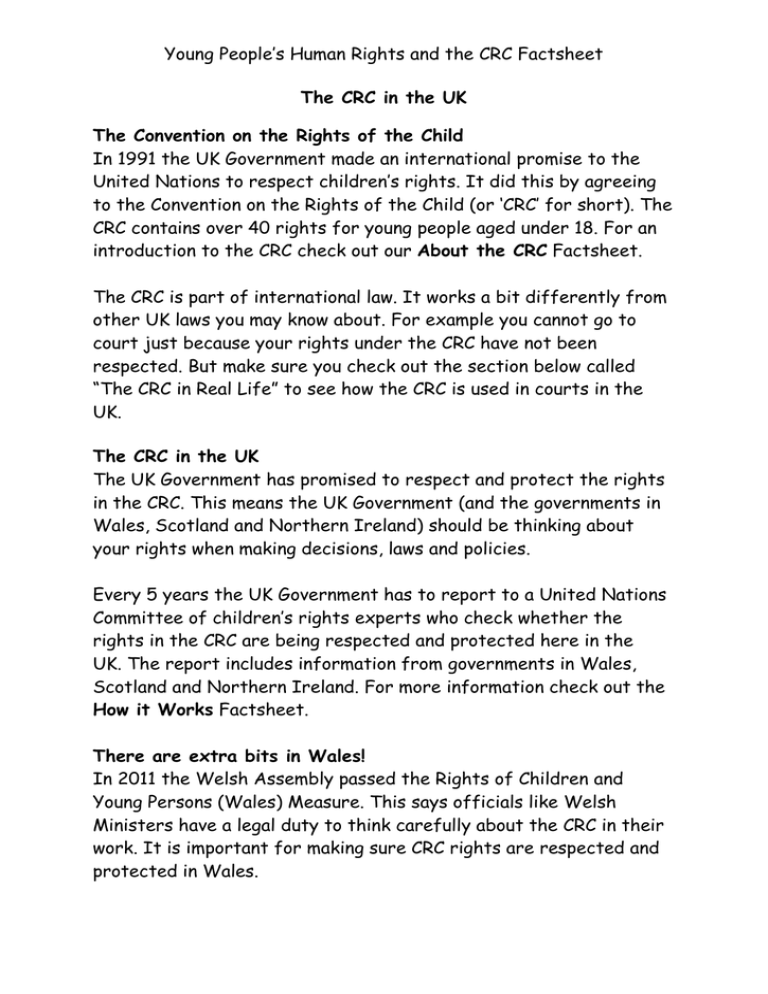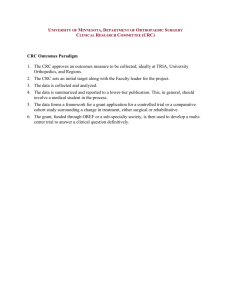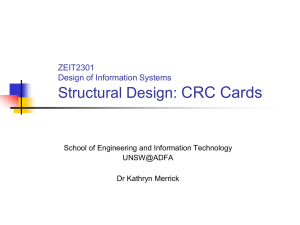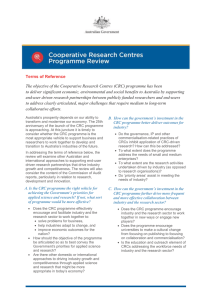as Word Doc Young People's Rights and the CRC
advertisement

Young People’s Human Rights and the CRC Factsheet The CRC in the UK The Convention on the Rights of the Child In 1991 the UK Government made an international promise to the United Nations to respect children’s rights. It did this by agreeing to the Convention on the Rights of the Child (or ‘CRC’ for short). The CRC contains over 40 rights for young people aged under 18. For an introduction to the CRC check out our About the CRC Factsheet. The CRC is part of international law. It works a bit differently from other UK laws you may know about. For example you cannot go to court just because your rights under the CRC have not been respected. But make sure you check out the section below called “The CRC in Real Life” to see how the CRC is used in courts in the UK. The CRC in the UK The UK Government has promised to respect and protect the rights in the CRC. This means the UK Government (and the governments in Wales, Scotland and Northern Ireland) should be thinking about your rights when making decisions, laws and policies. Every 5 years the UK Government has to report to a United Nations Committee of children’s rights experts who check whether the rights in the CRC are being respected and protected here in the UK. The report includes information from governments in Wales, Scotland and Northern Ireland. For more information check out the How it Works Factsheet. There are extra bits in Wales! In 2011 the Welsh Assembly passed the Rights of Children and Young Persons (Wales) Measure. This says officials like Welsh Ministers have a legal duty to think carefully about the CRC in their work. It is important for making sure CRC rights are respected and protected in Wales. Young People’s Human Rights and the CRC Factsheet The CRC and laws in the UK In the UK, we have the Human Rights Act which is part of our law. The Human Rights Act is about everyone’s rights, including children and young people. It sets out basic rights that belong to all people in the UK. These rights include lots of the rights in the CRC like the right to life, the right to education, and the right to family life. The rights in the Human Rights Act are not as detailed as the CRC rights. But because the Human Rights Act is part of UK law it means that all public officials like police officers, teachers, social workers, and governments and courts have a legal duty to respect your human rights. When these officials are working out how to respect children’s rights under the Human Rights Act they can use the CRC to help them decide what to do. There are other laws which protect rights in the CRC. For example the Equality Act says that you can’t be discriminated against because of certain characteristics. There are also laws which say that courts need to make children’s welfare a top priority. Other laws provide for you to go to school and others protect your privacy. The CRC in Real Life Right to be heard The Court had to make a decision about whether three teenage children should be able to express their own views to the court when it decided if they should live with their mother or father. As usual, the court appointed a guardian to advise who the teenagers would be best to live with. The teenagers were upset when they read the guardian’s report because they disagreed with it. They wanted to have their own solicitor to tell the court what they wanted even though this would slow down the process. Young People’s Human Rights and the CRC Factsheet The CRC says that children have the right to be heard about what they think should happen when adults are making decisions that affect their future. So the court decided that they should have their own solicitor, to give them freedom to express their own views. (This is a case called Mabon v Mabon, 2005) Best interests The Government banned students being physically disciplined in schools in 1998. Some parents who sent their children to private Christian schools said that teachers should still be able to physically discipline their children in line with their religious beliefs when it is appropriate. The Court decided that the human rights of the child were the most important in this situation. The CRC says that the best interests and dignity of children must be respected, including the right to be free from abuse. Therefore children could not be physically punished no matter which school they attended. (This is a case called Williamson v Secretary of State, 2005)





